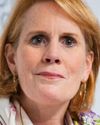
Earlier this year, Sara Rodríguez made one of her first angel investments after hearing about the deal through a Slack channel for Generation Z investors, venture capitalists and founders. She loved the idea of investing in new startups looking to raise a small figure so much so that she spends two to three hours studying about the startup ecosystem these days. Her investments are meagre – usually around $1,500 – but enough to rake a fraction of equity in startups, should they succeed. Sara sees her investments in tech startups akin to her parents’ portfolio, which is made up of assets like real estate.
Rodríguez is among a group of younger angel investors – part of the Gen Z, or those born after 1996, writing checks to invest in tech startups. A popular group on Slack, Gen Z VCs, was even formed to support aspiring angel investors, venture capitalists, and other young investors and founders. The group has grown to more than 6,000 members since it was formed in November 2020.
Not so long ago, there were formidable barriers to entry into angel investing. An individual had to be considered an accredited investors by the Securities and Exchange Commission in order to invest in most early-stage startups. Anybody can buy stock in a public company, yet investments in privately-owned companies are less secure and more speculative, which has prompted more tight regulations from the SEC. Since the 1930s, only individuals with an income greater than $200,000, or at least $1 million in total assets, could make angel investments—which bars most Americans, and unquestionably most young people, from participating.
This story is from the {{IssueName}} edition of {{MagazineName}}.
Start your 7-day Magzter GOLD free trial to access thousands of curated premium stories, and 9,000+ magazines and newspapers.
Already a subscriber ? Sign In
This story is from the {{IssueName}} edition of {{MagazineName}}.
Start your 7-day Magzter GOLD free trial to access thousands of curated premium stories, and 9,000+ magazines and newspapers.
Already a subscriber? Sign In

Architects Pick Their Favorite Building Material
Henry Ford, the father of assembly-line manufacturing, had a saying: “Any customer can have a car painted any color that he wants so long as it is black.”

POWERFUL WOMEN IN FINANCE
The coronavirus is not only a public health crisis of magnitude – it’s also a looming reshuffle of the global economic order. Leading through the pandemic and economic crisis is not a minor accomplishment, but the events of this past year haven’t stopped the 10 trailblazers who make up Industry Leaders’ Most Powerful Women in Finance list.

GERMANY ADOPTS NEW LAW TO HASTEN THE END OF COAL PLANTS
A new climate law adopted by Germany requires that all coal-fired power plants be shut down before the promulgated 2038 deadline. In January 2020, the German government had negotiated a deal worth €40 billion to phase out coal power by 2038, but now it seems the country is in a hurry to end its dependence on coal power due to urgent climate concerns.

IRS AND JUSTICE DEPARTMENT INVESTIGATING CRYPTO EXCHANGE BINANCE
Singapore-based Binance was co-founded in 2017 by Changpeng Zhao, and is the largest cryptocurrency exchange in the world. The US Commodity Futures Trading Commission (CFTC) is probing money laundering and tax-related offenses on the platform by any US citizen. They are investigating whether any illegal trading of derivatives linked to digital tokens was done. The United States residents can only purchase these kinds of products from firms registered with the CFTC.

GEN Z ANGELS
INVESTORS SEEM TO BE GETTING YOUNGER AND YOUNGER.

Biggest AI Talent Grab of the Year
In a post-COVID-19 world, the role of Mergers and Acquisitions (M&A) will be redefined. Companies striving to defend their existing markets and accelerate recovery are looking at a wide range of strategies such as alliances and partnerships. In addition, deal-makings now have to reflect the new environmental and societal priorities of the post-crisis world, which include making organic changes like going virtual, remote collaborations, and potentially less inperson networking.

POSTWAR BOOM
PANDEMIC BRINGS GOOD SALES GROWTH FOR LUXURY CAR BRANDS

GOOGLE PLANS TO BUILD A COMMERCIAL QUANTUM COMPUTER BY 2029
Google is confident it can build a commercial-grade quantum computer by 2029. The search engine giant’s chief executive Sundar Pichai announced the plan to build a quantum computer during the Google I/O stream. To follow through on this ambitious journey is an important milestone in the form of a new Quantum AI campus in Santa Barbara, California, where Google engineers and scientists will be hard to work to build the world’s first commercial quantum computer.

BEYOND THE STARS
The dream of space tourism is alive and well.
2021 SEMICONDUCTOR CHIP SHORTAGE
The semiconductor chip shortage is far from over but this hasn’t stopped governments around the globe from getting creative to move production ahead. The impact of the chip crisis on the automotive market has been debilitating, resulting in competition between automakers and electronics manufacturers.